Lipoma Treatment Cost in Turkey
Unlock Exclusive Discount : Your Gateway to Premium Healthcare with Medsurge India Health Value Card.

Unlock Exclusive Discount : Your Gateway to Premium Healthcare with Medsurge India Health Value Card.

Lipoma Treatment Cost in Turkey ranges from 1,600 USD to 2,300 USD, with variations depending on the specific procedure and potential complications.
Lipoma is a soft, fatty lump under the skin. It’s usually not harmful, but some people remove it for health or cosmetic reasons. Lipoma treatment in Turkey is affordable, but the price can change depending on several things:
A lipoma is a non-cancerous tumor that arises from the buildup of fatty tissue, typically developing slowly in the area between the skin and the muscle layer. These tumors are generally soft and pliable, often painless, and can be easily moved with light pressure from a fingertip. While lipomas are most frequently seen in middle-aged individuals, they can occur at any age. It is not uncommon for some people to have multiple lipomas.
It is crucial to understand that a lipoma is not malignant and is usually harmless. In most cases, treatment is unnecessary; however, if a lipoma causes discomfort or increases in size, surgical removal may be advisable. Many patients seek lipoma treatment in Turkey, as the country boasts some of the finest healthcare facilities compared to other renowned nations, and the cost of treatment is significantly lower than that of leading healthcare institutions worldwide.
Healthcare providers remain unclear about the factors contributing to the development of lipomas. These growths can be passed down through generations, meaning that if a family member has a lipoma, the likelihood of others in the family developing one increases.
Certain medical conditions can increase the risk of developing multiple lipomas. Conditions associated with lipoma formation include:
To identify a lipoma, your physician may conduct the following procedures:
While it is quite uncommon for a lump resembling a lipoma to develop, it could potentially be a form of cancer known as liposarcoma. Liposarcomas are malignant tumors found in fatty tissues; they tend to grow rapidly, are fixed in place beneath the skin, and are often accompanied by pain.
Most lipomas typically do not need treatment and are often identified out of medical interest. However, if a lipoma causes discomfort, pain, or has increased in size, your physician may recommend surgical removal. Treatment options for lipomas include:
Surgical Removal: The most common approach for treating lipomas involves excision, where the growth is surgically cut out. Recurrence after removal is relatively uncommon. Potential side effects of this procedure may include scarring and bruising. During surgery, the doctor may utilize one or both techniques to extract the lipoma while minimizing the chance of it returning. Additionally, employing multiple methods can increase the overall cost of the surgery.
Liposuction: This method is suitable for larger lipomas primarily composed of fatty tissue without significant blood vessel involvement. The procedure involves using a cannula to break down the fat deposits, which are then removed through suction.
Lipoma Excision: This surgical technique is effective for lipomas that have developed blood vessels. It involves dissecting the lump to some extent before removing it along with its surrounding sheath.
Steroid Injections: This initial treatment involves injecting a steroid solution directly into the lipoma, which can help reduce its size.
Punch Hole Excision: This targeted surgical method uses a small, round instrument called a punch to remove fatty tissue from small, superficial lipomas. It is generally not effective for larger or deeper lipomas.
Cryotherapy: This technique involves freezing the lipoma tissue with liquid nitrogen to eliminate it, making it suitable for smaller lipomas.
Radiofrequency Ablation: This method employs radiofrequency energy to heat and destroy the tissue of the lipoma.
Also Read:- Lipoma Treatment Cost in India
Lipoma treatment in Turkey is a safe and cost-effective option for both local and international patients. While the prices are generally lower than in many other countries, several factors like the size and number of lipomas, the clinic you choose, and the type of treatment can affect the total cost. By understanding these factors and asking for a detailed price quote in advance, you can plan your treatment with confidence and avoid any surprises.
| Estimate Type | Estimated Cost (USD) |
|---|---|
| Total Package Estimate | USD 700 – USD 2,300* |
*Final cost depends on hospital, patient condition, and additional procedures/devices if required. Share your reports to get an accurate quote.
Estimated cost range in India: USD 700 – USD 2,300*
*For an accurate quote and hospital options, share your reports and preferred city/hospital.
A: The success rate for lipoma surgeries is exceptionally high, exceeding 90%. As a result, the likelihood of complications or issues following the procedure is very low.
A: Yes, having a lipoma surgically removed by a skilled and experienced surgeon is considered safe. If the lipoma reappears after the initial surgery or if the results are unsatisfactory, a second surgery may be necessary.
A: Most lipomas do not need to be removed unless they cause discomfort or necessitate a formal diagnosis. However, if a lipoma is located in a prominent area and affects a person's self-esteem, removal may be considered. The two most common techniques for lipoma removal are liposuction and surgical excision.
A: With advancements in medical technology, laser therapy has emerged as a non-invasive treatment option for lipomas. This method utilizes focused laser energy to break down the fatty tissue within the lipoma, leading to a gradual reduction and absorption of the tumor by the body. A significant advantage of laser therapy is its minimal scarring.
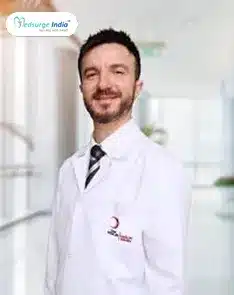
Endourologist
Consultant
20 years of experience
Derindere Hospital, Istanbul
View Doctor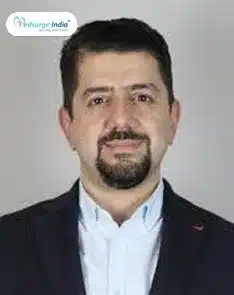
Urologist
Consultant
11 years of experience
Private Duygu Hospital
View Doctor
Urologist
Consultant
14 years of experience
Kolan International Hospital, Istanbul
View Doctor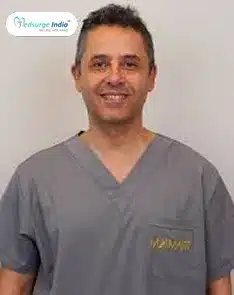
Urologist
Professor
15 years of experience
Okan University Hospital, Tuzla
View Doctor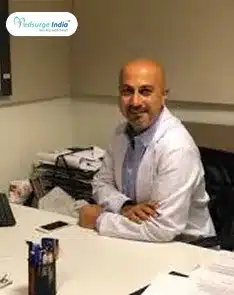
Urologist
Consultant
11 years of experience
Medipol University Hospital, İstanbul
View DoctorUrologist and Renal Transplant Specialist
Professor
10 years of experience
KOC University Hospital, Istanbul
View Doctor
Urologist and Renal Transplant Specialist
Professor
15 years of experience
KOC University Hospital, Istanbul
View Doctor
Urologist
Consultant
20 years of experience
Anadolu Medical Center, Kocaeli, Istanbul
View Doctor
Urologist
Consultant
15 years of experience
Kolan International Hospital, Istanbul
View Doctor


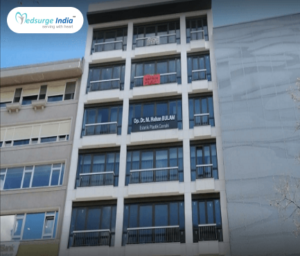




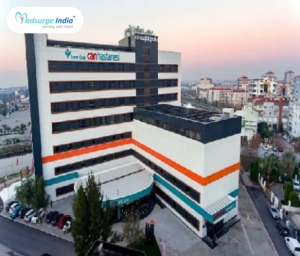
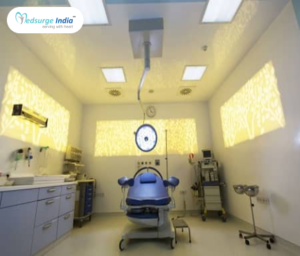
By using our site, you agree to our Terms and Conditions, Privacy Policy and Refund Policy. Medsurge India provides reliable healthcare information and treatment options to support informed decision-making. Our content is designed to support and complement the guidance of your treating doctor, helping you feel informed and confident throughout your healthcare journey. We also Accept International Payments.

Copyright © 2025 NSM ONLINE SOLUTIONS PRIVATE LIMITED. All rights reserved.